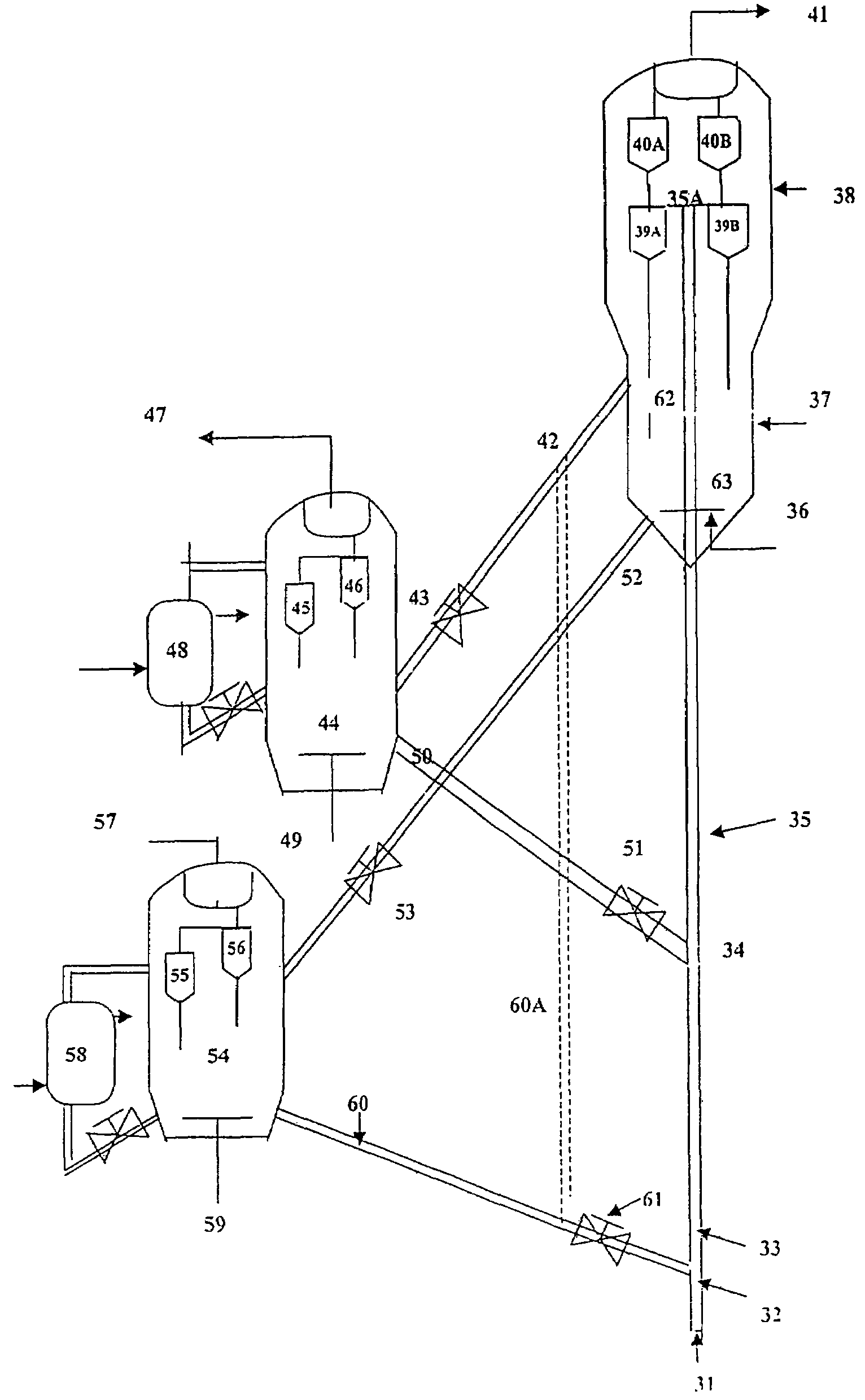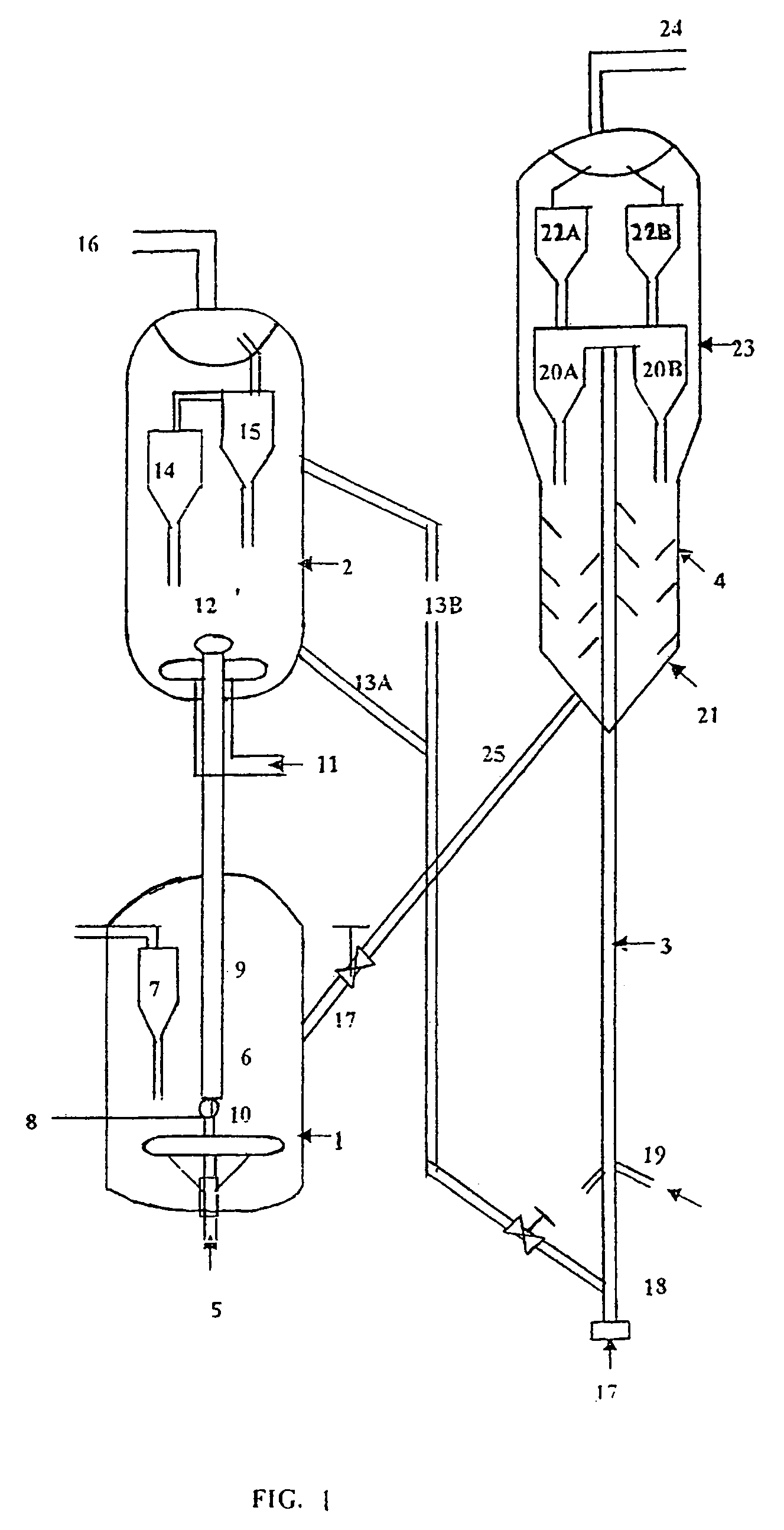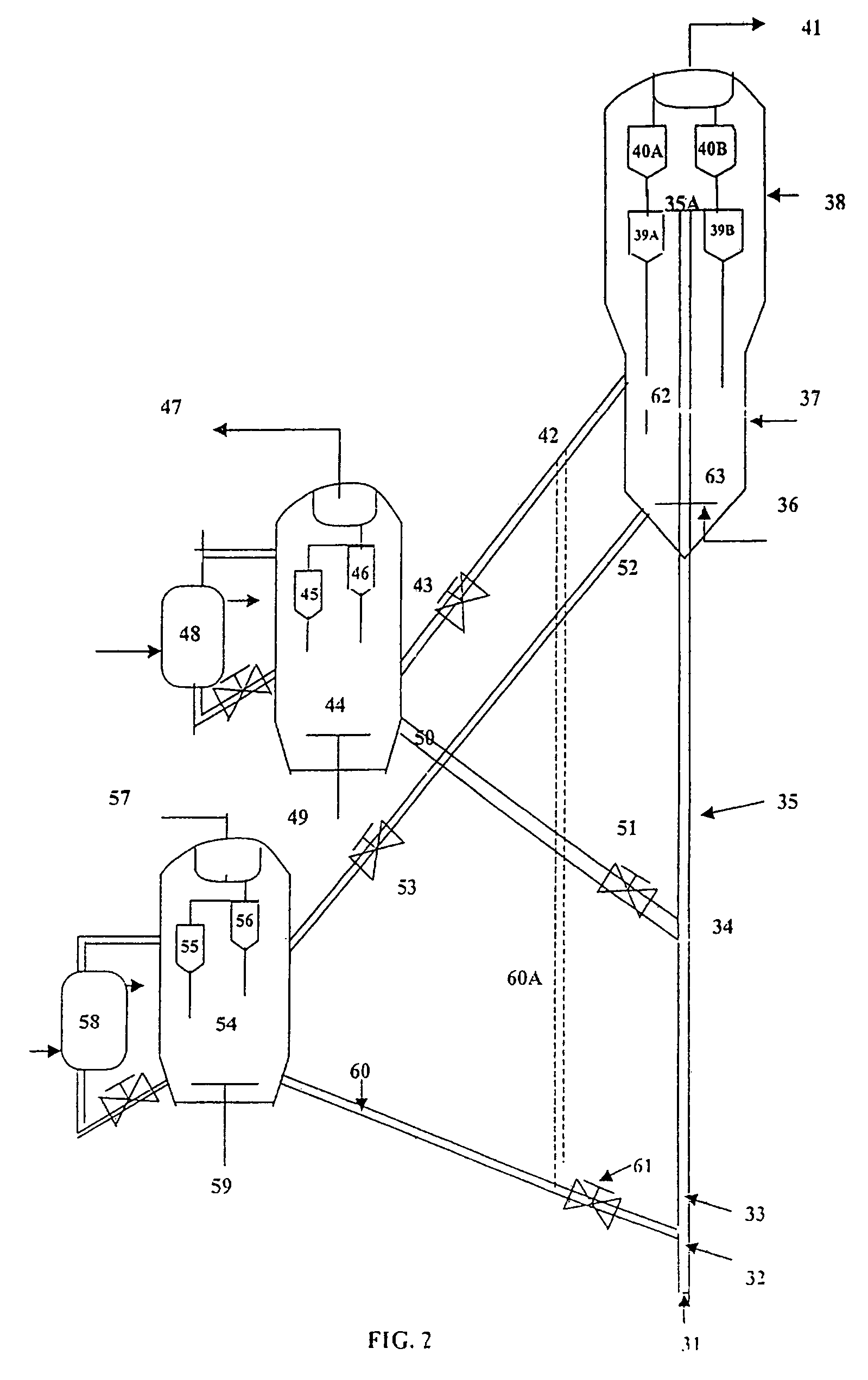Resid cracking apparatus with catalyst and adsorbent regenerators and a process thereof
a cracking apparatus and adsorbent technology, applied in the direction of catalytic cracking, hydrocarbon oil treatment, liquid hydrocarbon mixture production, etc., can solve the problem of reducing the catalyst/oil ratio to maintain the heat balance bringing down the catalyst activity and its selectivity, and serious problems such as the processing capability of the fcc uni
- Summary
- Abstract
- Description
- Claims
- Application Information
AI Technical Summary
Benefits of technology
Problems solved by technology
Method used
Image
Examples
example 1
[0134]This example illustrates the relationship between superficial gas velocity and segregation efficiency in the said apparatus. Two types of particles i.e. sand of particle size in the range of 210-350 microns with particle density of 2.6 g / cc and catalyst of size in the range of 40-150 microns with particle density of 1.45 g / cc are used in this study.
[0135]The apparatus is a circulating fluidized bed system consisting of a riser of diameter 6″ and of length 280″, having two stage cyclone system for gas-solid separation and a separator vessel of diameter 20″ ID and length of 100″ with a provision for introduction of gas through distributor from its base and an entry for receiving catalyst-sand mixture, an outlet for taking out the catalyst via upper stand pipe having flow communication with intermediate location in the riser, containing another outlet for sand withdrawal at the bottom of separator vessel and having connected to riser via lower stand pipe.
[0136]The sequence of ope...
example 2
[0143]This example illustrates the benefits of sequential dual solid processing particularly the vanadium deposition preferentially on the adsorbent particles and thereby improving the activity of the FCC catalyst.
[0144]For this purpose following samples are considered.
[0145]Catalyst-A Commercially available ReUSY (rare earth exchanged ultra stable Y) based FCC catalyst sample.
[0146]Adsorbent-B V-trap commercial additive with particle size in the range of 250-350 micron.
[0147]Vanadium is first deposited (by adopting pore volume impregnation route of Mitchell) at 0 and 10,000 ppm on the mixture of catalyst A and adsorbent B, mixed in the ratio of 10:0.6.
[0148]Typically, the MAT activity was determined using MAT (micro activity test) at 510° C. reactor temperature, 2.5 grams solid loading, 30 seconds feed injection time and varying feed rate to generate data at different conversion levels. Feed used is the combined feed used in one commercial FCC unit with CCR 0.4 wt %, boiling range ...
PUM
| Property | Measurement | Unit |
|---|---|---|
| temperature | aaaaa | aaaaa |
| temperature | aaaaa | aaaaa |
| residence time | aaaaa | aaaaa |
Abstract
Description
Claims
Application Information
 Login to View More
Login to View More - R&D
- Intellectual Property
- Life Sciences
- Materials
- Tech Scout
- Unparalleled Data Quality
- Higher Quality Content
- 60% Fewer Hallucinations
Browse by: Latest US Patents, China's latest patents, Technical Efficacy Thesaurus, Application Domain, Technology Topic, Popular Technical Reports.
© 2025 PatSnap. All rights reserved.Legal|Privacy policy|Modern Slavery Act Transparency Statement|Sitemap|About US| Contact US: help@patsnap.com



